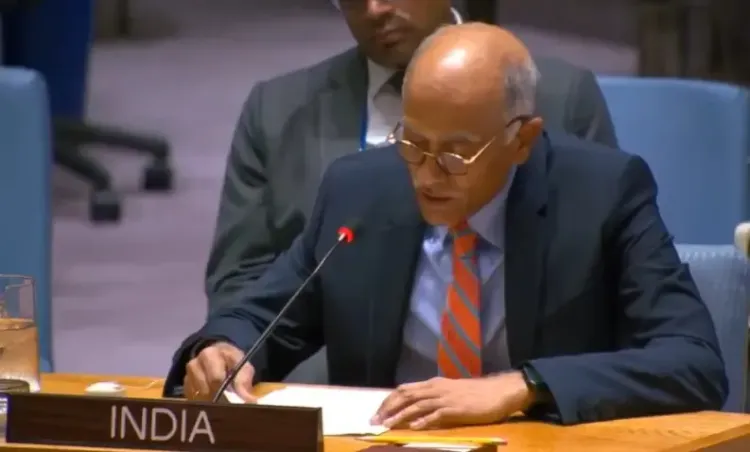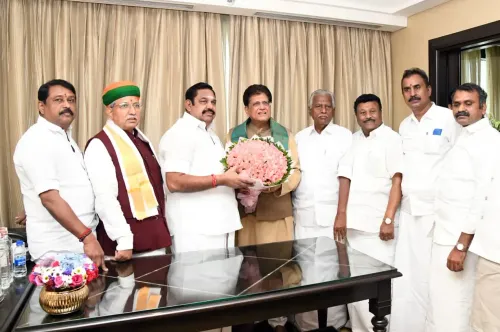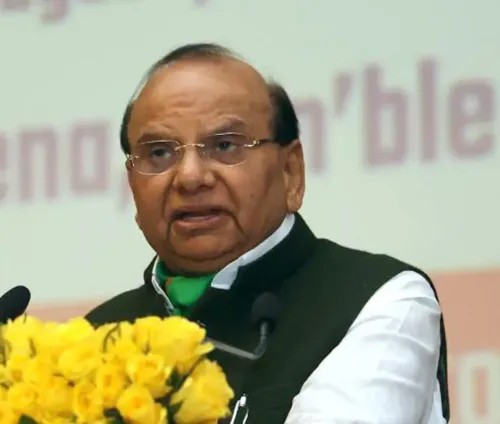How Can the International Community Prevent LeT and JeM from Exploiting Afghanistan?

Synopsis
Key Takeaways
- India urges international cooperation to prevent terrorist exploitation of Afghan territory.
- Harish emphasizes the need for a new strategy towards Afghanistan.
- Humanitarian aid commitment from India remains strong.
- Concerns over women's rights continue to grow under Taliban rule.
- Engagement with various stakeholders is a priority for India.
United Nations, Sep 18 (NationPress) India has urged the global community to take decisive action to prevent Lashkar-e-Taiba (LeT), Jaish-e-Mohammed (JeM), and other terrorist groups from exploiting the territory of Afghanistan.
“India is vigilantly observing the security landscape in Afghanistan,” stated India’s Permanent Representative P. Harish during the Security Council meeting on Wednesday.
“The international community needs to coordinate efforts to ensure that organizations and individuals designated by the UN Security Council, including ISIL (Islamic State group), Al-Qaeda, and their affiliates like Lashkar-e-Taiba and Jaish-e-Mohammed, along with their facilitators, do not utilize Afghan territory for terrorist activities,” he emphasized.
Harish expressed India’s approval of the strong denunciation of the Pahalgam terrorist attack by the LeT affiliate, The Resistance Front, which claimed the lives of 26 civilians based on their faith.
The Secretary-General's Special Representative for Afghanistan, Roza Otunbayeva, previously warned during the Council discussion regarding the UN Assistance Mission in Afghanistan (UNAMA) that the presence of “extremist factions” remains a significant issue for Afghanistan, despite a notable decrease in large-scale armed conflict and violence.
The Taliban regime, which assumed control of Afghanistan following the US troop withdrawal in 2021, is not recognized by the UN, which refers to it as the “de facto authorities,” a stance shared by most nations, including India.
However, Harish mentioned that a new strategy is essential for addressing Afghanistan’s situation.
“A coherent approach to managing a post-conflict environment must encourage positive behavior while discouraging detrimental actions,” he added.
“Merely emphasizing punitive measures is unlikely to yield the desired outcomes,” he asserted.
He noted that the UN and international community have “adopted more sophisticated strategies in other post-conflict scenarios” and expressed that “Afghanistan requires a fresh approach with previously unused policy tools to assist its population, who are in desperate need.”
Maintaining the current state of affairs “is detrimental to Afghanistan and is unlikely to satisfy the international community’s expectations for the Afghan people,” he stressed.
Harish affirmed that India “will persist in engaging with all pertinent stakeholders.”
On the diplomatic front, India’s External Affairs Minister S. Jaishankar has held two discussions with Afghanistan’s Acting Foreign Minister Amir Khan Muttaqi.
Although Muttaqi was anticipated to visit New Delhi this month, his trip was canceled due to UN sanctions restricting his travel.
Nevertheless, Deputy Minister of Medicine and Food Hamdullah Zahid, along with a senior Taliban official responsible for security and strategic matters (whose name remains confidential), recently visited India, according to IANS.
Harish reiterated, “Our commitment to fulfilling the developmental needs of the Afghan populace is unwavering.”
He highlighted the extensive humanitarian aid India has provided to Afghanistan.
Speaking via video link, Otunbayeva expressed hope that “a pathway can be established” for ongoing engagement with Afghanistan that yields positive results, particularly for women and girls.
She mentioned the internal dynamics within the de facto authorities, with one faction focusing on pragmatic needs of the Afghan people, while another is more inclined toward establishing a ‘pure Islamic system’.
The faction advocating the Islamic system has imposed increasing restrictions on the Afghan populace, notably affecting women’s education and employment opportunities.
Otunbayeva recounted instances where women were denied aid during recent earthquakes and how female UN personnel have been barred from accessing their workplaces.
“Given the lack of pragmatic governance, the international community is increasingly questioning how much support should be extended to a country whose leadership undermines its citizens,” she concluded.










